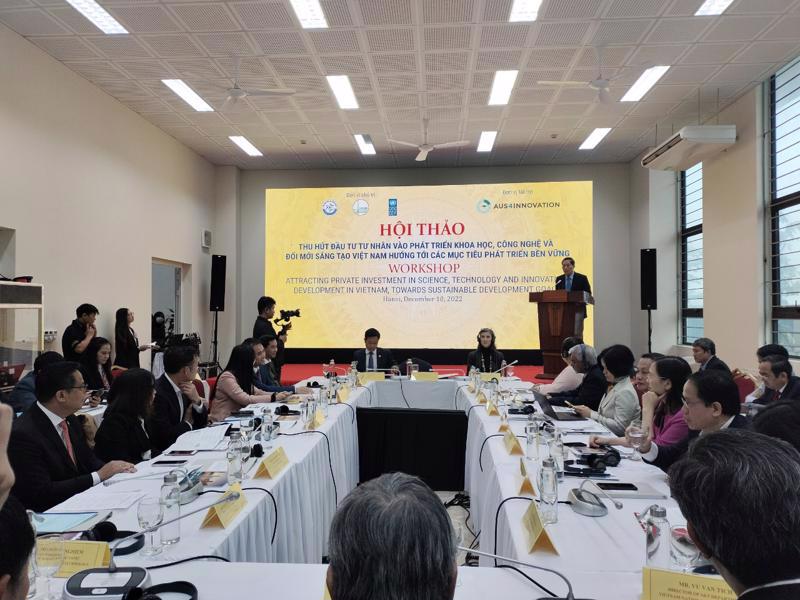The science and technology sector is yet to become a key driving force of Vietnam’s socio-economic development despite positive achievements being seen, Deputy Minister of Science and Technology Tran Van Tung has said.
Funds for science and technology development and innovation, including projects operated by enterprises, have shown positive initial results but, generally speaking, investment in science and technology remains limited and unsatisfactory, the Deputy Minister told a conference held jointly by the Ministry of Science and Technology (MoST), Vietnam National University, Hanoi, and the UNDP in Vietnam on December 10 to unlock private investment and accelerate the development of science and technology and innovation in Vietnam.
“Private investment for science and technology and innovation has been increasing recently versus public investment, and the regulatory framework is being strengthened,” Mr. Tung said. “However, the number of businesses investing in R&D and innovation is relatively low and the use of science and technology development funds within businesses is modest.”
President of Vietnam National University, Hanoi, Mr. Le Quan, said surveys indicate that just a few enterprises have invested in R&D and innovation activities, except some large State-owned enterprises (SOEs) that have their own research bodies.
The involvement of businesses in this process, especially those from the private sector, remains limited, he said.
Though State budget funding for science and technology rose from 0.19 per cent of GDP to 0.53 per cent in the 2011-2020 period, the amount is far from targeted 2 per cent by 2020.
Ms. Ramla Khalidi, UNDP Resident Representative in Vietnam, expressed her appreciation of the Vietnamese Government’s strong commitment to strengthening financial sources to develop science and technology and innovation.
However, she added, the country’s public and private investment in science and technology remains relatively low compared to the global average.
At half a per cent of GDP, investment rates are almost five times lower than the average of 2.23 per cent.
The government has made a strong commitment to meet the Sustainable Development Goals (SDGs) by 2030 through its National Action Plan. Science and technology and innovation are considered among the main drivers of socio-economic development in the country, as indicated in many regulatory documents, and are key enablers for achieving the SDGs.
According to Mr. Tung, it is essential to mobilize all resources from the State budget and the private sector.
“Unlocking private investment in science and technology and innovation development towards sustainable development goals is vital in boosting socio-economic development in Vietnam,” he said.
“A suitably-adapted public-private partnership pilot program for R&D and innovation could help focus and leverage resources and improve cooperation between public research and business actors, including foreign firms,” Ms. Khalidi said.









 Google translate
Google translate